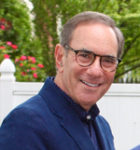Parasha Shoftim

SAN DIEGO — This parasha may be an environmentalist’s dream. It says, “When you besiege a city for an extended period, to make war against it to capture it, do not destroy its trees by wielding an axe against them; for you may eat from them, and you shall not cut them down; for is the tree of the field a man (or, for man is like the tree of the field), that you should besiege it?”
Is this a question or a statement?
The Ibn Ezra sees it as a statement, “Ki Haadam eitz hasadeh, the human being is a tree of the field.” He believed we are intertwined with the environment. Destroy a tree, and we destroy ourselves.
The Targum Yonatan similarly drew a metaphor and took this verse to mean, “Don’t hurt the tree – is the tree a person that would feel pain?”
For more than 3,000 years, our ancestors have held far-reaching concern about our environment. Judaism extends our concern beyond trees to include the destruction of anything that benefits mankind, which the parasha describes as bal tashchit. If plant and animal life are affected, we are taught, so too is human life. We are not set apart from nature, and we are not to waste any resources of nature.
The Sefer HaChinuch further teaches us the real message of bal taschit – to avoid evil, to work authentically to improve our world, to build and do good. This is what not destroying a tree is truly about, avoiding destruction and instead building goodness in our society. Isn’t this what life is about, and isn’t this a beautiful message at this time in the days and weeks leading to Rosh Hashana/Yom Kippur?
Are you a builder or a destroyer? Are you someone who cuts down or promotes?
If we are the “tree of the field,” and we are, then how can we grow well rooted, well anchored, and blossom in our attachment to Hashem, to Torah and to Judaism? This is our time to plow, to reseed, to insure every blade of grass in our life is properly fed and to insure that we are spiritually well fertilized. Our faith in Hashem, our Creator, is the ultimate nourishment for our growth, and serves as the foundation of our being a “tree of the field.” Trees without well-anchored foundations don’t last. At this time of our calendar year, we can move past weaknesses and develop into strong, abundant trees of life.
*
Dr. Mantell writes a d’var Torah each week for Young Israel of San Diego, where he and his family worship.
Pingback: Our Shtetl San Diego: September 6, 2019 - San Diego Jewish World